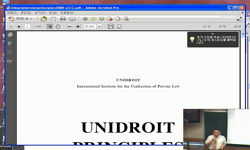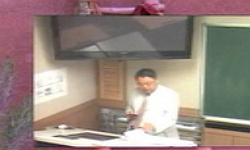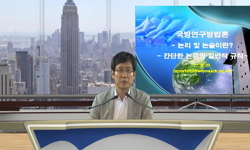The trade facilitation concept of PTAs has evolved from limited provisions on customs issues to include more comprehensive provisions on regulatory and border issues affecting the movement of goods across borders. In addition, although the convergence...
http://chineseinput.net/에서 pinyin(병음)방식으로 중국어를 변환할 수 있습니다.
변환된 중국어를 복사하여 사용하시면 됩니다.
- 中文 을 입력하시려면 zhongwen을 입력하시고 space를누르시면됩니다.
- 北京 을 입력하시려면 beijing을 입력하시고 space를 누르시면 됩니다.
https://www.riss.kr/link?id=A108990013
-
저자
손승표 (성결대학교)
- 발행기관
- 학술지명
- 권호사항
-
발행연도
2024
-
작성언어
English
-
주제어
Trade Facilitation ; Customs Trade ; Factor Analysis ; WTO ; WCO. ; 무역원활화 ; 관세무역 ; 요인분석 ; WTO ; WCO
-
등재정보
KCI등재
-
자료형태
학술저널
- 발행기관 URL
-
수록면
161-179(19쪽)
- 제공처
-
0
상세조회 -
0
다운로드
부가정보
다국어 초록 (Multilingual Abstract)
The trade facilitation concept of PTAs has evolved from limited provisions on customs issues to include more comprehensive provisions on regulatory and border issues affecting the movement of goods across borders. In addition, although the convergence of these provisions in terms of the subject matter and language of PTAs is increasing due to the influence of the WTO TFA, it is also unavoidable that significant differences remain.
The use of technology is supporting the modernization of customs, other regulatory and border agencies and expanding the scope of trade facilitation provisions. In particular, many countries are exploring the use of new technologies such as blockchain to support international trade and border management activities. In modern free trade agreements, a number of developments are taking place simultaneously to modernize and simplify the administration of preferential rules of origin. As customs administrations in each country make better use of automation concepts and build risk management and post-clearance audit capabilities, customs administration business processes will become more sophisticated. The modernization of customs administration is also likely to have an impact on the customs union, especially customs and tax collection. It is analyzed that the process, reporting and documentation requirements will be further simplified.
동일학술지(권/호) 다른 논문
-
전자담배의 HS 품목분류와 관세행정의 시사점 : 금연정책을 위한 규제 이행을 중심으로
- 한국관세학회
- 이지수
- 2024
- KCI등재
-
4IR시대의 원산지 검증성과에 영향을 미치는 제도요인에 관한 실증연구: ICT 역량의 조절효과
- 한국관세학회
- 김창봉
- 2024
- KCI등재
-
- 한국관세학회
- 김형철
- 2024
- KCI등재
-
수출입신고 DATA를 통한 국내 수출기업의 무역대금결제방식 결정요인에 관한 실태 분석
- 한국관세학회
- 유광현
- 2024
- KCI등재





 DBpia
DBpia





